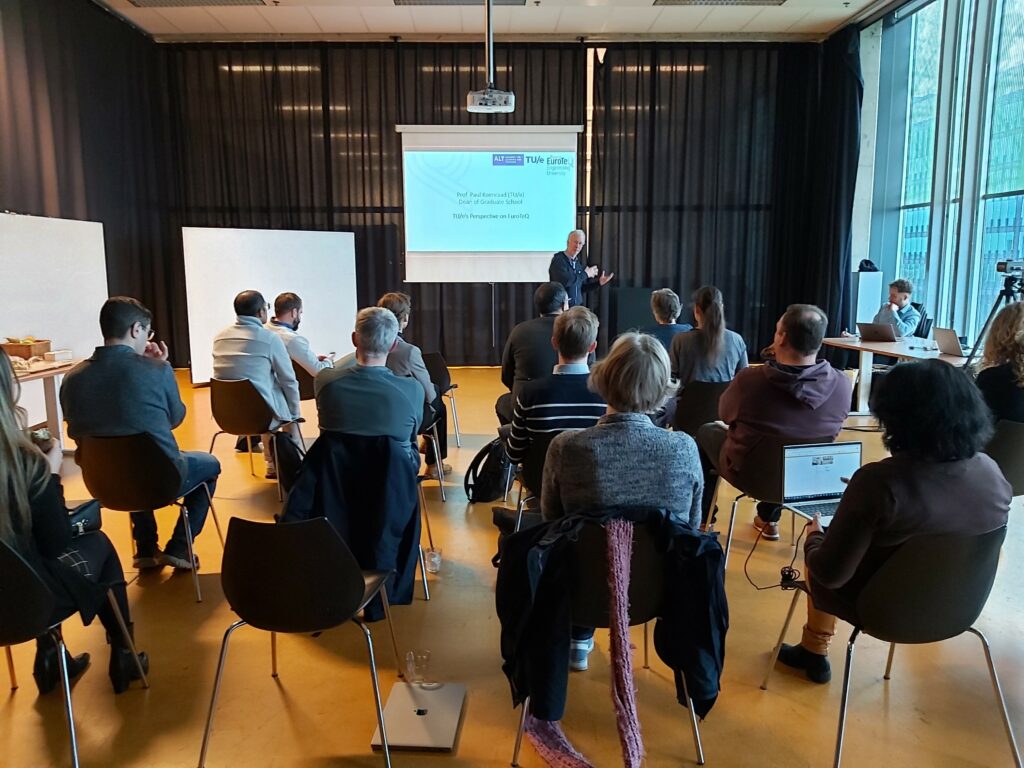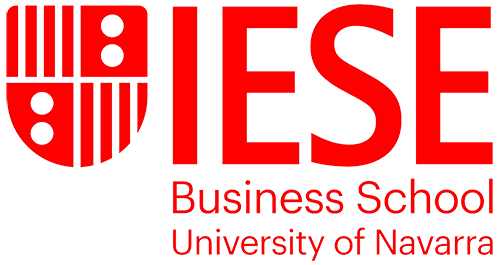What can universities gain by collaborating in university alliances? How can alliances aid universities in becoming responsible co-creators with other societal actors? We discussed these questions as part of a meeting from the Horizon 2020 research project “BoostEuroTeQ” at TU Eindhoven, 27th – 28th November 2023. During the one-hour meeting, we wanted to discuss the role of university alliances in relation to co-creation. Two initial presentations were followed by half an hour of discussion with the audience. The event was hosted by the Academy for Learning and Teaching (ALT) and moderated by Dr. Lukas Fuchs (TU/e).
During the meeting, we had the opportunity to explore the role of university alliances within a broader European and global framework. Prof. Paul Koenraad (dean of the graduate school, TU/e) emphasized the significance of collaboration across EuroTeQ universities, particularly in facilitating discourse on stakeholder engagement. He underscored the pivotal nature of entrepreneurial learning for students through such engagements. The deployment of Challenge-Based Learning (CBL) as a pedagogical format was described as well-suited for addressing contemporary grand challenges. Prof. Sebastian Pfotenhauer (TUM) supplemented this stance by stressing the need for empirically grounded research on stakeholder engagement activities. While increasingly asked to promote co-creation activities, universities need to align constructive practices with research on addressing key challenges associated with co-creation activities. This encompasses considerations on how to sustain enduring engagement with stakeholders and how to mitigate the risks of linear “scaling up,” potentially resulting in the loss of contextual sensitivities.

These perspectives seemed to prompt a lot of food for thought for the audience. A participant from Eindhoven sought clarification on the distinction between co-creation, which Sebastian Pfotenhauer highlighted, and CBL, which Paul Koenraad and the Eindhoven team are familiar with. It was clarified that CBL centers on experiential learning with real-world cases, aiming to resolve contemporary challenges through multidisciplinary teamwork. In contrast, co-creation stems from a different tradition, one that is interested in the challenges, pitfalls, and advantages of public participation in science and technology development, with a focus on questions of social justice, responsibility, and inclusion.
Additional comments revolved around the question of whether university alliances would indeed replace competition. While some participants were convinced of the exclusive benefits derived from international alliances thanks to the absence of national competition for national funds, others questioned whether the European alliance initiative could truly eliminate competition concerns. A central question emerged concerning Europe’s stance on the growing technological competition between China and the US, with a desire for alliances to foster such broader perspectives. Proposed pathways forward included greater openness for mutual learning between EuroTeQ universities, viewing the “elite” label as a constructive point of exchange rather than a final goal, and advocating for collaborative efforts based on thematic alignment across our universities.
Author: Corinna Nathalie Voll







